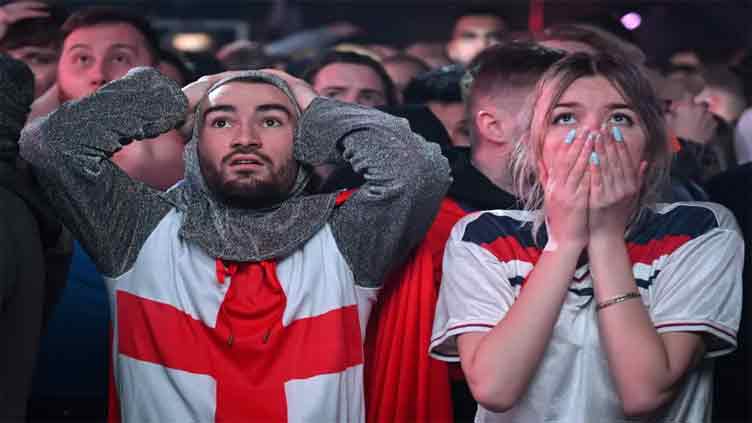Fans left reeling by England's World Cup dichotomy

Sports
If England perform next week as they did against Samoa they will almost certainly be gone too
LILLE (Reuters) – Spare a thought for the England fans drifting around Lille on Sunday, not knowing whether to laugh or cry as their team prepares for a very winnable World Cup quarter-final on the back of an absolutely wretched display against Samoa.
England scraped home 18-17 with a late Danny Care try to make it four wins out of four but were outplayed in many areas for much of the match.
They competed well physically and in the set-piece, which should be the minimum expectation, but when it came to ambition in attack, accuracy and even the execution of the most basic skills, they were second-best other than right at the start and end.
Not long after the game finished, fans packed the local bars to watch Ireland put Scotland to the sword playing a brand of rugby unrecognisable to anything seen for years and probably not even in the peaks of 2003 and 2019 by the men in white.
And yet, by the time England play their quarter-final in Marseille next Sunday, probably against Fiji, Ireland could be on their way home if they come out the on the wrong side of their monster match up with New Zealand.
One of France and South Africa will also depart, joining Scotland and probably Australia in the "watching from home complaining about the unfair pool draw" pity party.
If England perform next week as they did against Samoa they will almost certainly be gone too, but they surely can't be as bad and, as coach Steve Borthwick said when searching for some positives, they will benefit from Saturday's hard game after a two-week break.
England went into the match already assured of top spot and subconsciously, however much a team tries to overcome it, it is very difficult to find the same intensity as when everything is on the line, as it will be in Marseille.
That should not explain the sheer number of basic errors on show, and Borthwick's explanation that he has had only limited time to work with certain combinations carries little weight when, for example, George Ford and Owen Farrell were starting together at 10 and 12 for the 41st time.
Borthwick did try to shake things up early in the second half by bringing on Marcus Smith but it was Ford rather than his undroppable captain Farrell who made way.
It left Smith, a flyhalf, playing fullback, Freddie Steward (fullback) playing on one wing and Joe Marchant, generally a centre, on the other - no wonder Borthwick was confused about his combinations.
Even so, Smith undoubtedly brought a spark of energy and invention and his presence merely highlighted Farrell's ponderous display. But Smith did the same and more in the win over Chile, only to be dropped back to the bench as the coach stuck with his safety-first approach.
Asked this week why exciting wing Henry Arundell had not been able to retain his place after scoring five tries against Chile, Borthwick highlighted the off the ball positioning and work rate of his first-choice back three.
It's true that armchair fans will always want the eye-catching attackers and don't share the statistics or the intense, up-close training analysis of the coaches, but even Borthwick must recognise that a solid set piece and "strong edge defence" isn't going to be remotely enough to challenge the likes of Ireland, though it might be enough to get past Fiji.
He praised his previously-criticised players for finding a way to get out of a tight spot on Saturday but they should never to have needed to, and it was hardly done by following the captain's example.
Farrell followed up becoming his country's leading point scorer by becoming the first World Cup player to be timed out when taking a penalty. He accepted the blame, with a simple analysis that applied to most of the day: "Not good enough".

